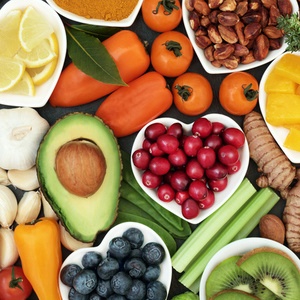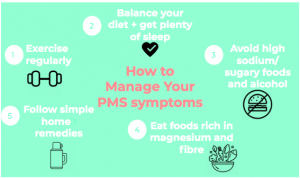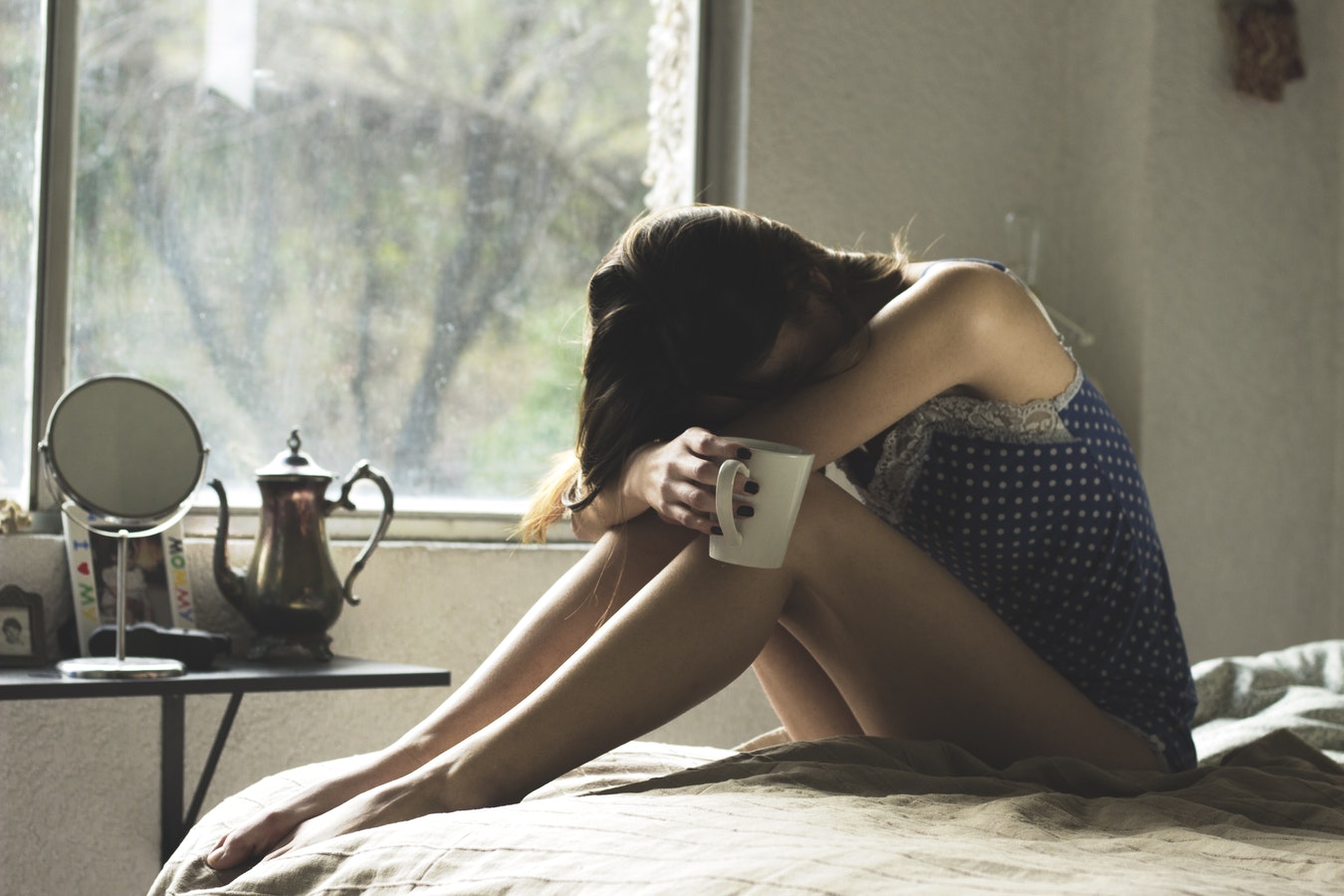We all know the struggles of bloating, acne, back pain and mood swings during PMS. Here’s your simple guide to reduce PMS symptoms with five easy-to-follow suggestions you can incorporate in your diet and lifestyle.
Decoding PMS
We’ve all been through those unexplained food cravings and mood swings, only to realize they are symptoms of PMS leading up to our periods. We often come across the term PMS in relation to bodily changes, but do we really know what it means and entails? PMS refers to the physical, mental and emotional changes that occur in a woman’s body before the onset of her period. As if period symptoms aren’t difficult enough, PMS comes with a whole host of its own symptoms and problems.
Although PMS can be an internal heads-up for that time of the month, this invisible reminder often makes its presence felt through cramps, mood swings, fatigue and bloating, among other things. According to Mayo Clinic, it is estimated that three out of every four menstruating women have experienced PMS, with symptoms ranging from negligible to severe.

The good news is we no longer have to suffer in silence. It is possible to reduce the discomfort through diet and lifestyle adjustments. Understanding the symptoms is an important part of finding solutions. While there isn’t a “one-size fits all” elixir, tracking patterns over time can help you understand your body’s behavior and apply solutions better. With the help of information from medical practitioners at Cleaveland Clinic, we have put together some useful tips to help you help yourself with PMS problems.
PMS Symptoms
Most common symptoms of PMS include:
- Bloating
- Abdominal Cramping
- Mood Swings and Irritability
- Appetite changes and food cravings
- Indigestion
- Lack of sleep
- Acne
- Headaches
How Exercise Helps

While it may seem like the last thing you want to do while going through PMS, the benefits of exercise cannot be underestimated. Exercise releases endorphins or “feel good” hormones, which boost your mood and alleviate the heaviness from bloating. Bloating or fluid retention results from the release of a hormone called progesterone as well as a sodium heavy diet. In addition to exercise, reduced salt intake prior to menstruation and Vitamin B6 supplements with their diuretic properties are recommended to reduce bloating issues. If PMS is causing you to feel bloated, this is a good time to slip into the sweatpants and grab a mat for yoga.
Monitoring Diet and Rest
Eating healthy is an effective solution across the board and helps to manage all PMS related symptoms. Watching what you eat before the onset of PMS can be very effective. Remember to ramp up the intake of whole grains, fruits, and vegetables a week in advance. Eating at regular intervals during the day also helps regulate sugar levels. A healthy lifestyle includes not just a balanced diet but also taking care of our hydration levels and sleep schedule. Somewhere between those deadlines and chores, remember to drink enough water and prioritize your sleep. While sleep helps to regulate stress levels, mood and alertness, water helps to flush salt out of the body and reduce bloating.
Foods to avoid
When you’re craving sodium heavy carbohydrates like potato chips, remember that sodium retains water and will not help to ease the bloating. Alcohol and high sugar foods will also add to water retention in the body. In addition, blood sugar fluctuations caused by sugary sweets lead to mood swings. To regulate mood, cutting back on chocolate and caffeine has proven to be effective. Small shifts in your diet, such as replacing candy with whole grains, can go a long way in helping your body.
Foods that help
Adding seeds, such as chia seeds, to your diet will both satisfy you and provide much-needed nutrition. Pumpkin seeds contain magnesium- which helps to ward off headaches and boost levels of serotonin, the feel-good hormone mentioned earlier. It can be easy to incorporate these foods in your everyday diet- eat magnesium-rich baked beans for breakfast and grab some popcorn while you indulge in your favorite show on Netflix, but be sure to avoid too much salt. Add omega-3 to your diet by tossing flax seeds on your salad. Taking calcium supplements and switching to low-fat dairy products is also advisable. Eating fibrous foods can relieve indigestion and bind to estrogen to expel it from the body, thereby regulating hormone levels. All these nutritious food items are beneficial to our system in multiple ways and should be incorporated into our diets and lifestyle on a regular basis.

Medication and home remedies
If necessary, painkillers such as Ibuprofen and aspirin can be helpful in cases of severe cramps but should only be taken after seeking the advice of a medical professional. For milder symptoms, taking a hot bath or using a hot water bottle on your belly can relieve cramps. Tackle acne by keeping washing your face regularly to reduce oiliness and keeping your cell phone clean to prevent bacteria from coming in contact with the face. Anxiety can elevate stress levels which in turn increases the intensity of PMS symptoms. Easing stress through meditation and relaxation can significantly mitigate PMS symptoms.
Psychological well being is one of the most important aspects to reduce PMS symptoms- remember to keep an optimistic mindset, take the difficult days in your stride and seek emotional support from friends and family.
Key Takeaways:
- PMS symptoms can be regulated with the help of a balanced diet and active lifestyle.
- Even simple exercises can help reduce bloating and improve mood.
- Make sure you have a balanced diet and get plenty of sleep.
- Avoid high sodium and sugary foods, as well as alcohol.
- Foods rich in magnesium and fiber are helpful.
- Simple home remedies such as hot water bottles can work wonders.
5 Tips to Reduce PMS Symptoms

Comment below and tell us about your home remedies and what keeps you going when PMS gets you down!








